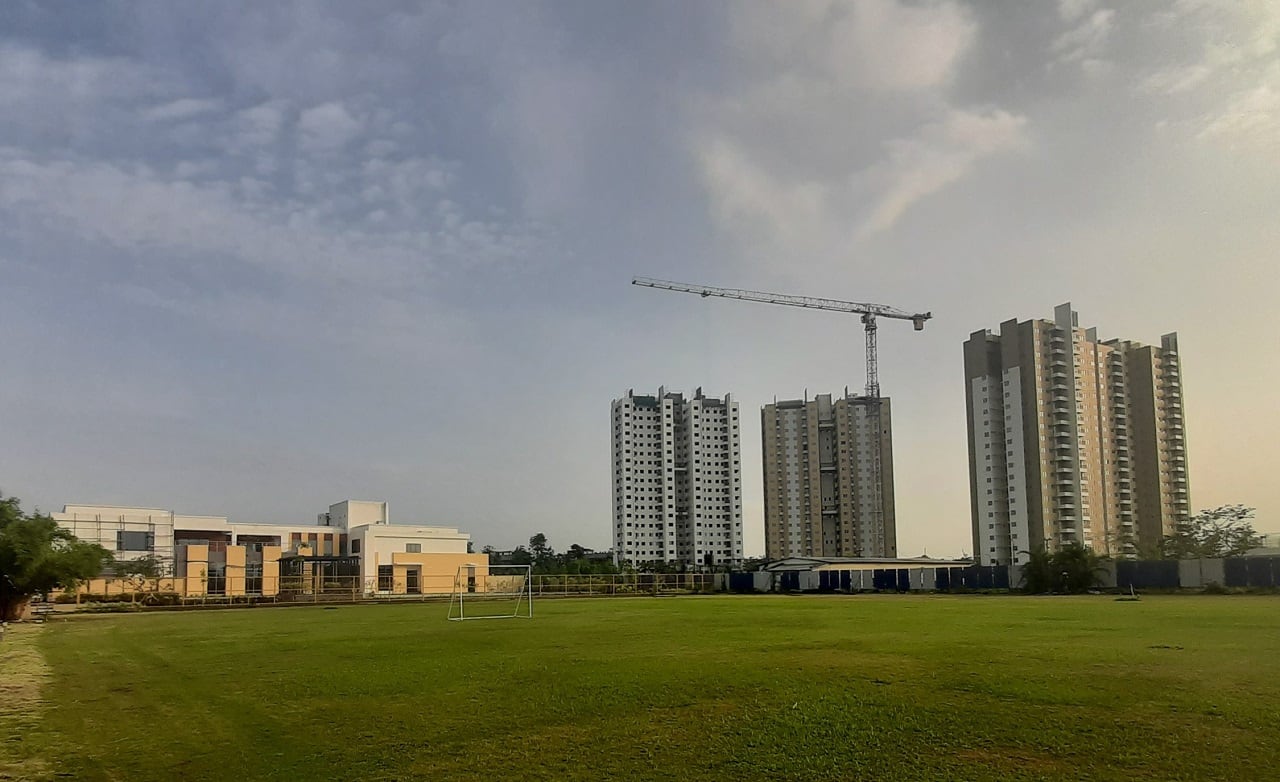Despite the pandemic, it is confident of investing into mid-segment projects
COVID-19 has been unable to affect the works of business conglomerate Shapoorji Pallonji which is developing mid-income-housing projects in Howrah-Kolkata, Mumbai, Pune and Gurugram under the brand Joyville.
Despite the pandemic, it is confident of investing into mid-segment projects and to launch at least two new projects in Maharashtra and new phases in the existing projects of Gurugram, Virar and Howrah this year, Sriram Mahadevan, MD at Joyville Shapoorji Housing told Moneycontrol in an exclusive chat.Joyville is a Rs 1,240 crore platform by Shapoorji Pallonji, Asian Development Bank(ADB), International Finance Corporation (IFC) and Actis Private Equity to develop mid-income housing projects in India. Till date four projects have been launched under this platform and over Rs 850 crore have already been deployed.
“We have so far deployed over Rs 850 crore. We are also looking at the possibility of investing the remaining over Rs 300 crore of the Rs 1,240 crore in couple of more projects in Maharashtra/Delhi (NCR) by the end of this financial,” he said.
“Despite COVID-19, we are confident to keep our commitment to the valued homebuyers and started the handover process of Phase 1 at Joyville Howrah as per the timeline. As a responsible corporate we have implemented strictly all the WHO protocols at our sites and also during the handover process. Joyville Howrah is the first project of this platform,” Mahadevan added.
The company is also planning to start the handover process of Phase 1 at Joyville Virar by December which is much ahead of the schedule.
The company witnessed decent demand under the current circumstances through the online medium. “During the lockdown we have noticed that customers are confident of reposing faith in branded developers to reduce project execution risks leading to their financial risks," he said.
Millennials, too, have been drawn towards investing into a property of their own. Affordability and adaptability are key. Customers are looking to buy into larger homes to enable them to work from home without much stretching their budget, he said.

Customer demand for real estate during the lockdown has remained more or less stable. “In fact, interest in real estate has only increased due to the volatility witnessed by customers in the stock markets and mutual funds. They are all looking at investing in a physical asset which is there for keeps,” he says.
Interestingly, the demand from the NRI segment has gone up during the lockdown. “We have seen growth in interest from NRIs as the rupee has depreciated leading to a healthy contribution of 25 percent odd from NRIs on overall sales during this period which otherwise used to hover around 15 percent," he said.
Besides, more Indians from various parts of the world including New Zealand, Australia, US, UK and South Africa have come forward to invest and the dependence on Gulf countries has reduced on account of the pandemic.
The company has also launched a virtual platform ‘Virturo’ to provide a seamless home buying experience to the home buyers during the lock down.
Construction across sites has resumed and we are noticing that the migrant labourers are coming back slowly but surely to our sites.
So, will the company focus on automation to tide over the labourers’ shortage? Mahadevan is quick to point out that while reliance on automation for construction is good, too much of it is unhealthy since India has huge workforce which depends on construction and infrastructure industry.
“If the company were to fast-track construction through automation and sales remain moderate, it may have to raise project financing to complete the project on its own without falling back on funds from customers. Also, customers may be in no mood to pay up if a company were to raise demands for funding in quick succession as they have planned their finances across three years, which is the lifecycle of any project,” he explains.
“If the sales are brisk, a developer can think about deploying technologies to fast track construction. There are enough and more technologies available worldwide to speed up construction and thus that’s not a challenge in today’s times. Also real estate is not akin to a manufacturing plant where the entire product can be manufactured mechanically without human intervention. There are modules of construction which can be mechanized and have been mechanized to a large extent," he said.
Asked if new launches would incorporate COVID-19 features such as a home offices and quarantine rooms, Mahadevan told Moneycontrol that while such inputs have been received from customers for new projects, affordability will always drive the demand in India.
The challenge and opportunity in front of the developers would be to ensure implementation of the feedback received from customers in the design process but by keeping an eye on the affordability aspect too.
Elements such as enablers for social distancing, sanitization aspects would all be incorporated into projects but their relevance post the pandemic would also be kept in mind since new projects would ideally get delivered in a post pandemic era due to vaccines being available by then for sure.
“India will remain a price sensitive market and costs have to be kept under check,” he added.









